Adaptive LMS Algorithm for Audio Noise Cancellation
Problem Definition
Problem Description:
One common problem faced in audio processing is the presence of unwanted noise in audio signals, which can degrade the quality of the audio and hinder the clarity of the desired signal. This noise can come from various sources such as background noise, electrical interference, or distortion during recording or transmission. Traditional methods of filtering out noise may not be effective in removing all types of noise and may result in loss of desired signal information.
Therefore, there is a need to develop a more efficient and adaptable solution for noise cancellation in audio signals. The proposed project on "Audio Signals Noise Cancellation using Adaptive LMS algorithm" aims to address this issue by implementing an adaptive filter based on the Least Mean Square (LMS) algorithm.
By adjusting filter coefficients in real-time to minimize an error signal, the adaptive filter can effectively remove noise from audio signals without prior knowledge of the noise characteristics.
This project will assist in providing a high-quality, de-noised audio signal by reducing unwanted noise and preserving the integrity of the original audio content. The effectiveness of the noise cancellation process can be analyzed by comparing the de-noised signal with the original signal, thereby demonstrating the efficiency and performance improvement achieved by using the adaptive LMS algorithm.
Proposed Work
The proposed work aims to explore the application of adaptive filters in the field of audio signal processing, specifically focusing on noise cancellation using the Least Mean Square (LMS) algorithm. Signal processing, which involves extracting, enhancing, storing, and transmitting information, is crucial for various applications. Unlike conventional filter design techniques, adaptive filters adjust their coefficients to minimize an error signal, making them suitable for dynamic environments where prior information is not known. The project involves the implementation of the LMS algorithm through a series of steps, starting with obtaining an audio signal from the user, mixing it with noise, and then passing the noisy signal through an adaptive filter for noise cancellation. The final de-noised signal is then compared with the original signal for analysis.
Modules such as Regulated Power Supply, Fuel Gauge, Basic Matlab, and MATLAB GUI are used for the implementation. This research falls under the category of Audio Processing Based Projects within the broader domains of M.Tech | PhD Thesis Research Work and MATLAB Based Projects, focusing on subcategories like Noise Detection & Cancellation Based Projects and MATLAB Projects Software.
Application Area for Industry
The project on "Audio Signals Noise Cancellation using Adaptive LMS algorithm" can be very beneficial for various industrial sectors that rely heavily on audio processing. Industries like telecommunications, broadcasting, entertainment, and even healthcare can greatly benefit from the implementation of this project's proposed solutions. In the telecommunications sector, clear audio signals are essential for effective communication, and noise cancellation can improve the quality of phone calls and video conferences. In broadcasting and entertainment, noise-free audio is crucial for producing high-quality content like music, movies, and podcasts. In healthcare, accurate and clear audio signals are important for diagnoses and communication among medical professionals.
The project's proposed solutions can address specific challenges that these industries face, such as unwanted noise in audio signals that can degrade the overall quality of the content or hinder effective communication. By implementing the adaptive filter based on the LMS algorithm, industries can effectively remove various types of noise without prior knowledge of their characteristics, thus preserving the integrity of the original audio content. The benefits of implementing these solutions include providing high-quality, de-noised audio signals, improving the efficiency and performance of audio processing, and ultimately enhancing the overall user experience in different industrial domains.
Application Area for Academics
MTech and PHD students can benefit greatly from the proposed project on "Audio Signals Noise Cancellation using Adaptive LMS algorithm" for their research work in the field of audio signal processing. This project addresses the common issue of unwanted noise in audio signals through the implementation of an adaptive filter based on the Least Mean Square (LMS) algorithm. Researchers can use this project to explore innovative methods in noise cancellation, simulations, and data analysis for their dissertation, thesis, or research papers. The relevance of this project lies in its potential to provide a high-quality, de-noised audio signal by effectively removing noise without prior knowledge of its characteristics. MTech students and PHD scholars in the fields of signal processing, audio engineering, and digital signal processing can utilize the code and literature of this project for their work, gaining insights into adaptive filters and LMS algorithm applications in real-time noise cancellation.
The future scope of this project includes exploring advanced adaptive filter algorithms and testing the performance in different noise environments for further research development. Overall, this project offers a valuable opportunity for researchers to advance their knowledge and skills in audio processing, contributing to the ongoing advancements in the field.
Keywords
audio signal processing, noise cancellation, adaptive LMS algorithm, adaptive filters, audio quality, unwanted noise removal, signal integrity, dynamic environments, error signal minimization, MATLAB projects, MATLAB GUI, audio processing software, noise detection, speech recognition, voice enhancement, signal filtering, electrical interference removal, background noise reduction, audio transmission improvement, signal clarity, noise cancellation efficiency
| Shipping Cost |
|
No reviews found!






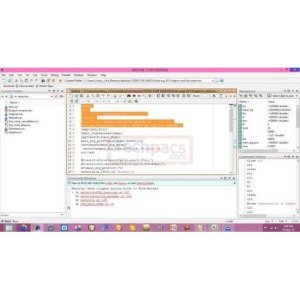
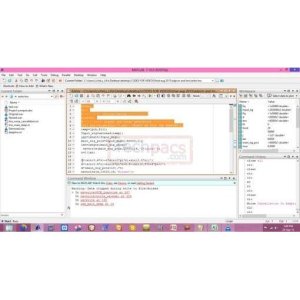
















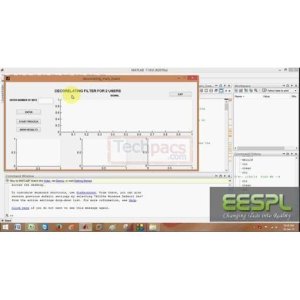
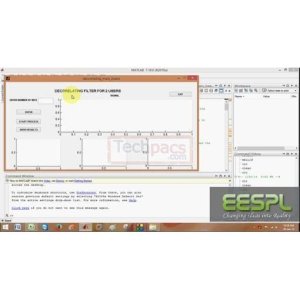

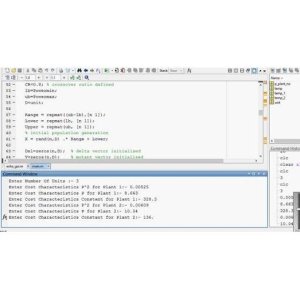

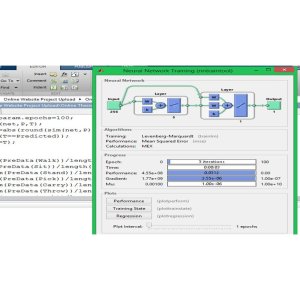
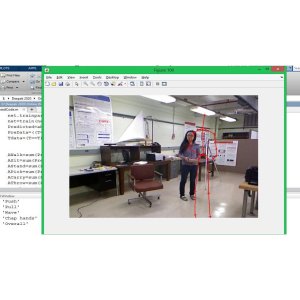
































No comments found for this product. Be the first to comment!